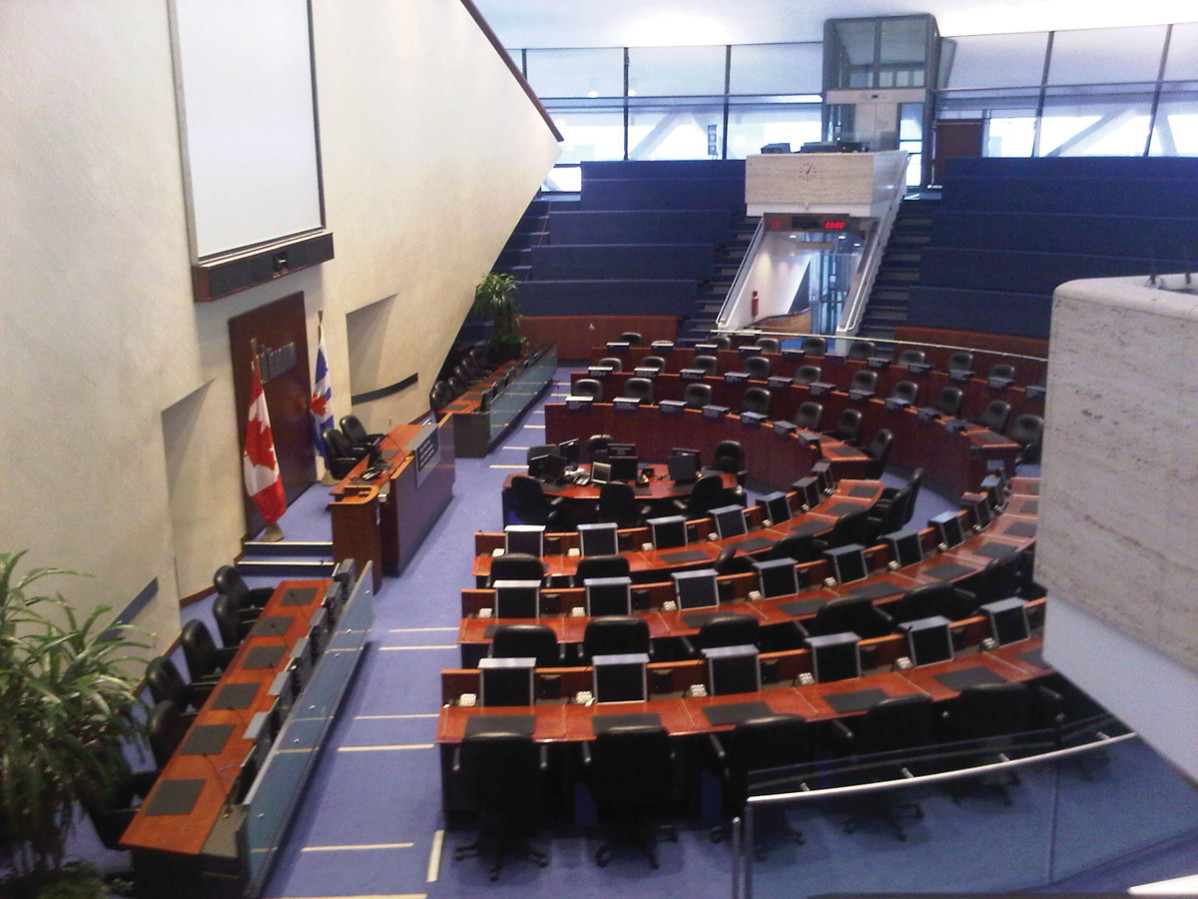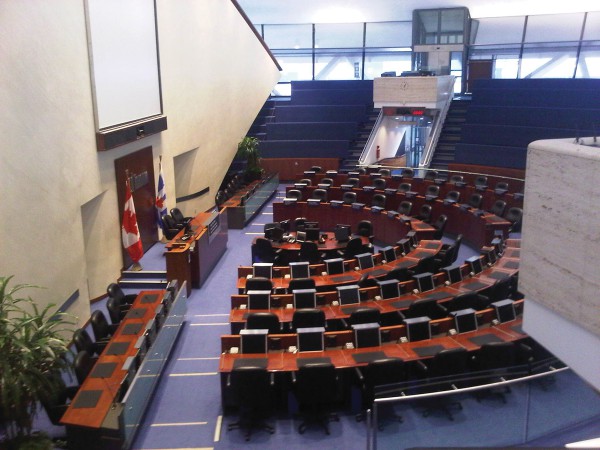Rob Ford’s mayoral chaos shows that city council has the power to govern itself
The City of Toronto is divided into 44 wards, and in the upcoming election each of these wards will select an individual to sit on the city council.
Citizens living in these wards should care who represents them. If nothing else, the reign of Mayor Rob Ford showed the people of Toronto that these elected officials do more than simply abide by the decisions of the mayor.
During the time that Ford was in office, the city council increasingly tightened their grip on the reins of power. Using their role as a decision-making body, the city council stepped in to clean up the chaos Ford generated when attempting seemingly simple tasks like drawing up a budget for Toronto.
When doing so, these elected officials were speaking on “behalf of the people who live in their ward,” according the city council website.
Regardless of who is elected as the next mayor, the citizens of Toronto should hope that the new city council remains similarly engaged with the daily politics of life in our sprawling metropolis.
One way the public can ensure this is by researching the platforms of the candidates who are running for the city council in their ward, which will allow Toronto voters to make a more informed decision than if they cast their ballot based only on the mayoral debates.
As a result, it is more likely that the public will elect a representative from their ward who shares the issues that they feel are important.
Once elected to city council, these new elected councillors will work with the sworn-in mayor as well as a number of different committees which contain a mix of councillors and unelected members of the public.
According to the city council website, every four weeks these various elements of city hall will come together to hold council meetings. Citizens can watch democracy in action as their issues are made into agenda items, presented, debated, and voted upon.
There are five possible outcomes for this process outlined by city council.
Despite its cheery-sounding name, being “received” is the worst outcome an agenda item can have. It is described bluntly on the council website as meaning that “council has received the recommendations for information only, and will take no further action.”
Similarly, “deferred” is a term which describes when the council has postponed consideration of the item to a future meeting.
Another outcome which yields no immediate change is when an item is “referred,” which means that the council has passed the item on to a committee or staff for further study or action rather than discussing it.
The second-best outcome is if the council votes that the item should be “amended.” This means that city council has made some changes to the recommendations attached to the item before agreeing on them.
The best outcome for an item before the council is that it is “adopted.” The use of this term means the council has agreed to the recommendations about the item without altering the proposed changes. Once the council has adopted an item, this positive result is then confirmed by the passage of a by-law.
With this passage of legislation, the formal job of the city councillors is concluded since it is the employees of the City of the Toronto, not the individual councillors who are responsible for implementing these by-laws.
However, it is important that the people of Toronto not stand back and watch once politics unfold, once the ballots are counted, in this upcoming election.
The public can play an active role in ensuring our elected representatives are accountable to the voters—the people on whose behalf they are supposed to be speaking.



